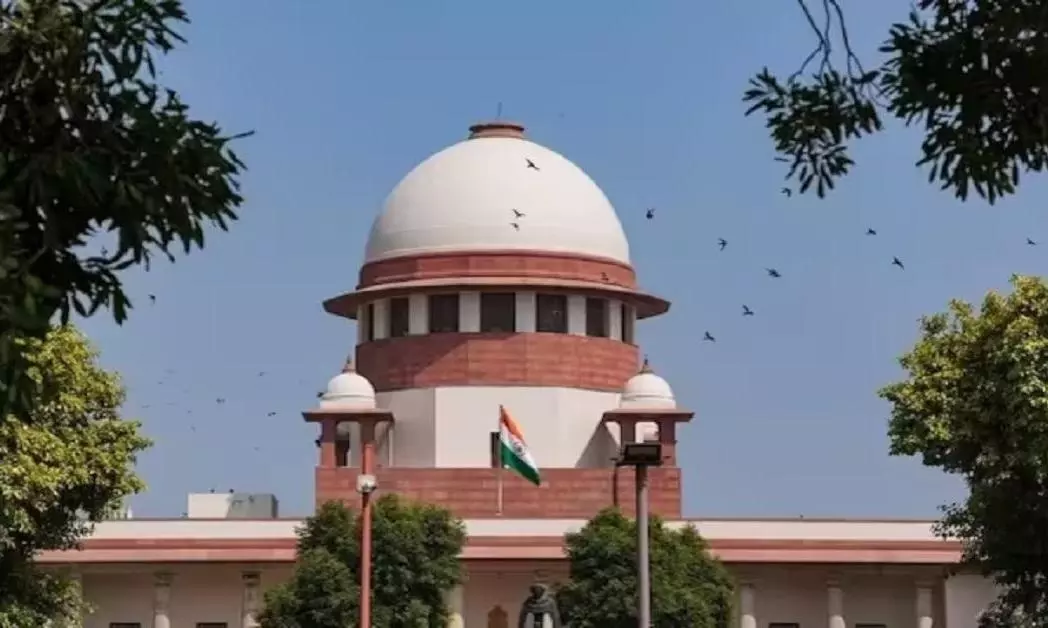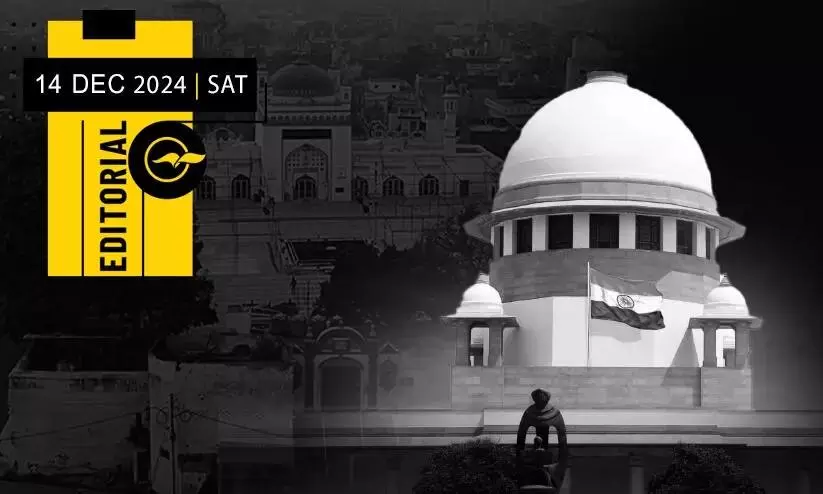
SC tags Owaisi’s plea on Places of Worship Act with pending matters
text_fieldsNew Delhi: The Supreme Court on Thursday directed that a plea filed by AIMIM President Asaduddin Owaisi, seeking the implementation of the Places of Worship Act, 1991, be tagged with a batch of pending petitions related to the same issue. The 1991 Act prohibits lawsuits aimed at reclaiming places of worship or altering their character from what it was on August 15, 1947.
A bench, led by Chief Justice of India (CJI) Sanjiv Khanna and Justice Sanjay Kumar, ordered that Owaisi’s petition be considered alongside the ongoing cases where restrictions have been imposed on registering new suits, passing effective or final judgments, or conducting surveys in relation to mosques and shrines. The bench noted that an interim order passed on December 12, 2024, by a Special Bench, had already prohibited the registration of fresh suits under the Places of Worship Act, as well as final decisions or effective orders in pending cases until further notice.
The Special Bench, comprising Justices Khanna, Kumar, and K.V. Viswanathan, had also directed the Union government to file a response within four weeks to the petitions challenging the constitutionality of the Places of Worship Act. The matter is scheduled for hearing on February 17, 2025.
Meanwhile, several intervention and impleadment applications have been filed before the Supreme Court, seeking the dismissal of the petitions challenging the Act. The Managing Committee of Varanasi's Gyanvapi Mosque, in its application, argued that declaring the 1991 Act unconstitutional would have "drastic consequences," undermining the rule of law and communal harmony. The committee emphasized that any challenge to the Act must be based on constitutional principles, not on the idea of retribution against past rulers.
The committee also pointed out that 20 suits are currently pending in various Varanasi courts, which seek to nullify the protection provided by the 1991 Act and alter the character of the Gyanvapi Mosque, including restricting Muslim access to the mosque.
Similarly, the Committee of Management of Mathura's Shahi Masjid Eidgah stressed that the Act was enacted by Parliament to ensure the nation's progress and has withstood the test of time for over 33 years.
The All India Muslim Personal Law Board (AIMPLB) expressed concern that local courts were undermining the intent of the 1991 Act by entertaining petitions and issuing orders regarding mosques. The AIMPLB noted that local courts’ actions had rendered the Act ineffective. The Supreme Court’s decision to halt any effective or final judgments, as well as prohibit surveys, is seen as a step to preserve the spirit of the Act until the next hearing.
With IANS inputs
























